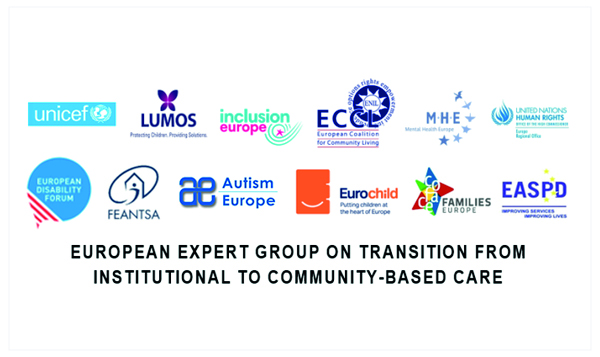EU must prioritise social inclusion in its COVID-19 recovery

The European Expert Group on the Transition from Institutional to Community-based Care (EEG) is concerned that the EU Recovery Funds and the adapted European Semester process will not sufficiently deliver on social inclusion of those who have been most affected by the pandemic. The EEG urges the EU to invest in social inclusion and into fair economic and social reforms.
On 17 September 2020, the European Commission published the Annual Sustainable Growth Strategy (ASGS) for 2021. In previous years, the ASGS was the guide for the European Semester process. This year, the European Commission launched a new tool together with the ASGS – the Recovery and Resilience Facility (RRF).
After a period of economic stagnation, the objective to invest in economic recovery seems good. 37% of the investment will also be done in “green transition” and 20% will stimulate the “digital economy”. What is missing, however, are targets for investments in social inclusion or protection mechanisms to avoid, for example, investments in institutional care facilities.
There is a clear danger social inclusion and protection will be overlooked, and even of funds directly contributing to segregation. The refurbishment or renovation of “care institutions” may be viewed by some as suitable under “green transition” and receive EU funding. The resulting harm to peoples‘ lives and rights would be a clear violation of fundamental EU values.
While the guiding text around the RRF makes reference to the EU Social Pillar as a compass, there are no strong safeguards to ensure all investments are in line with the Pillar, or with the UN Convention on the Rights of Persons with Disabilities (UNCRPD).
Moreover, during the pandemic, many social services faced significant challenges, such as increased expenditures in parallel with unstable or decreased funding, and staff shortages, which put at risk the continuity and sustainability of support. The RRF needs to respond to these challenges and provide guarantees to ensure access to person-centred and empowering services in the community in line with the principles of the UN Convention on the Rights of Persons with Disabilities and the European Pillar of Social Rights. Therefore, all reasonable investment must be channelled towards the development and strengthening of family- and community-based services, including preventative services to keep children and their family together, and the promotion of independent living.
“Institutional care is a contradiction in terms”, stated Commissioner Dalli at a conference last year. “We want to empower people and foster independence.” We call on Member States and on the EU to make good on this promise.
Stay connected
Get our latest news, personal stories, research articles, and job opportunities.

